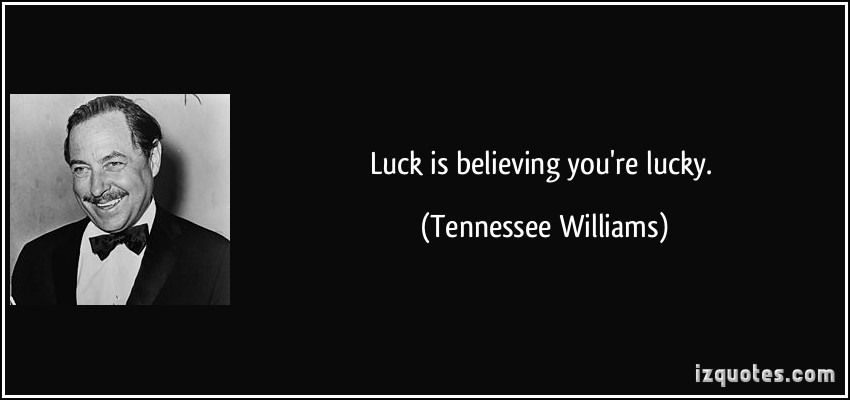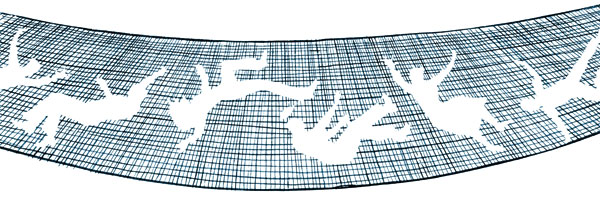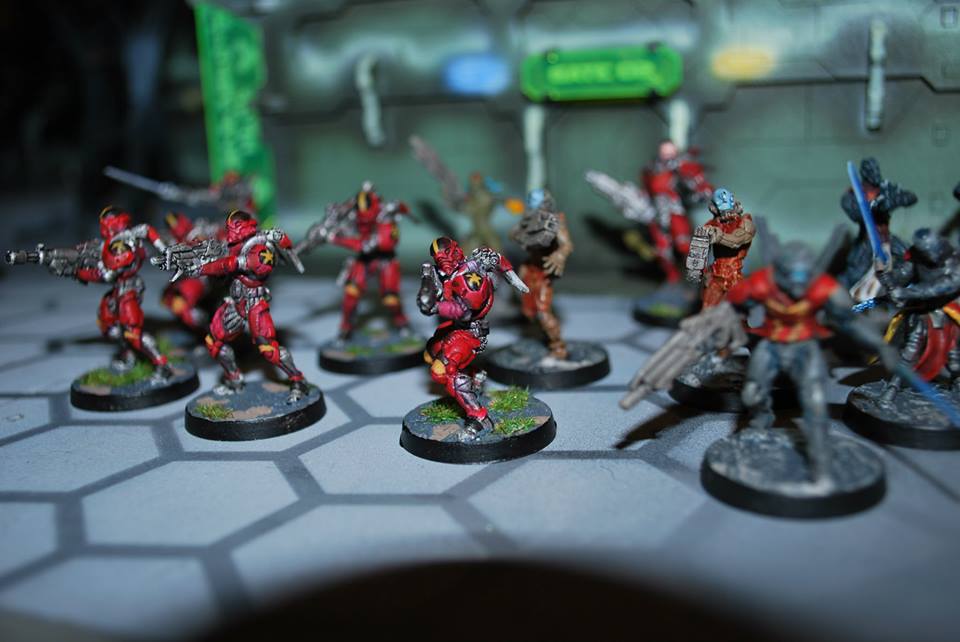Luck is believing you are lucky.
It’s a pithy quote, but one that’s resonated with me, and I think is deeper than it first appears. I have been described as lucky, and from a cosmic standpoint, I am. I won the character creation die roll at birth and have been gifted with a great deal of opportunity throughout my life.
At the same time, I’ve known a great many people who have had the same opportunities and gifts as I have and have failed to do much with them. Often, this is a result of a cascade of events that leaves them rather worse off than they started– a “string of bad luck”. I joke with friends about bad luck (I’ve commented about how my luck in games is awful unless I stand a chance of harming someone else’s experience through a random string of good luck, at which point it happens a lot), but the reality is I don’t actually believe in bad luck.
Luck, for me, is something you can only see in hindsight. After something has happened, you can look back on it and say “wow, that was lucky”. Much of the good fortune I’ve had in my life I can look back and say “oh, huh, that was lucky” in hindsight. Luck isn’t a safety net; you can’t live expecting things to go well for you because when they inevitably don’t, everything will fall apart because it’s easy to get into a cascade failure if you’ve left things to chance and have no real safety nets.
I use luck as a way to appreciate good things that have happened to me that I wasn’t a direct part of, and to clear my mind about the bad things that have occurred that I’ve had no control over. It lets me better understand what I should take credit or responsibility for and what I shouldn’t. It helps me keep my cool and keep a clear head in a crisis.
To use a recent, low-impact example: In the Infinity tournament I played recently, I suffered what some might call a string of bad luck in the second round, losing more than half my force in my opponent’s first turn, to a single model that cut a bloody swathe through my lines, and then getting heavily locked down. My opponent commented later that he was intimidated by how calm I was as I lost almost every single one of my critical pieces. The reality was that I was rapidly trying to figure out what to do next as I lost die roll after die roll, but I was confident that my choices had been correct ones and my dice failing me wasn’t something I could control. Instead, I focused on my turn, and what actions I was going to take in response. It gave me a clarity of purpose that was entirely separate from the die rolls I was losing.
By the end of my second turn, I’d won the round, despite suffering crippling losses and barely scratching the paint on my opponent’s force– I think he lost perhaps a single model in the entire round. I could have easily gotten caught up in how bad my luck had been (and falling into the trap of assuming it would continue), or started taking reckless chances with low odds of success (something I’ve seen a lot of people do when put in tight spots). Rather than blaming my poor luck or trying to use luck as a safety net, though, I was able to win by doubling down on the choices I’d previously made that I thought were good, not using luck as a proof that my choices were bad and not worth following through on and not breaking from the plan. I had fewer tools to work with, but the plan was still intact.
In the previous turn, I’d set up a number of objectives for myself, playing very aggressively and securing a strong lead. I was still in the lead as my opponent ended his turn, just not quite as far ahead. Rather than trying to retaliate against my opponent, I simply continued the plan I’d started with, finishing off the objectives I’d set up. I had one model who could accomplish that goal, but he was able to do it before getting knocked out at the end of my turn. Looking back, I was lucky that my rolls worked out as well as I would’ve liked, but the reality was that my choices in my previous turn had given me what I needed to secure victory, even put very far behind in my opponent’s turn.
Despite appearances, I’m actually extremely risk-averse. I take a lot of chances that seem risky, but I’ve often done a lot to mitigate or negate the penalties for failure. I’ll take long-shot chances if the risks are low, but I’ll rarely take even good chances if the stakes are very high. As a result, from the outside, it looks like I’m taking a lot of chances and somehow making most of them work, but the reality is that I’m only taking chances that don’t harm me overmuch if I fail.
From the outside, this looks like luck. On the inside, I believe in my ability to assess and mitigate risk, and the choices I make as a result.
Luck is believing you are lucky.





1 comment